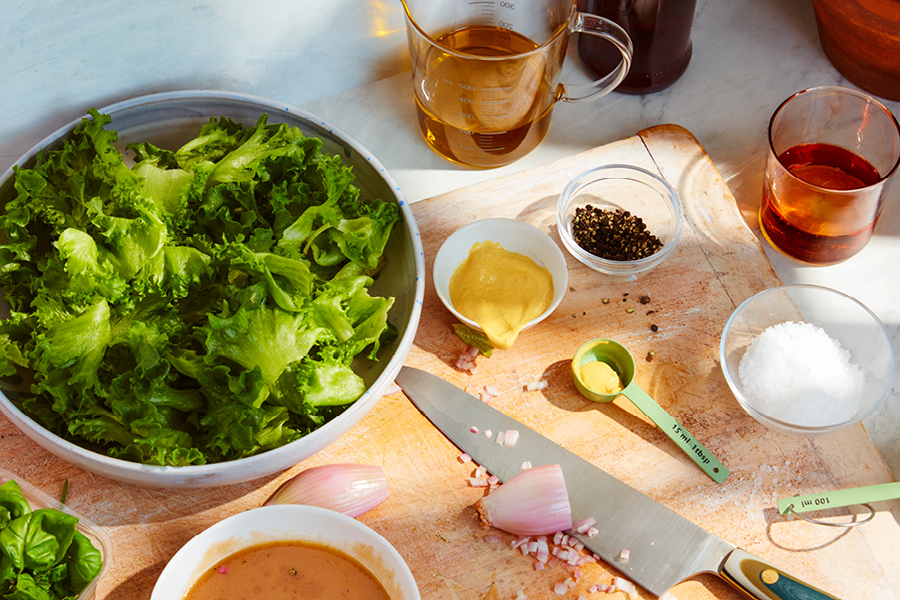4 Quick, Healthy Changes to Start Making in the Kitchen

No one wants to think they’re ingesting pesticides. But the reality is, even as eating healthy and whole becomes increasingly widespread, the use of chemicals remains a mainstay in farming, across all types of fruits and vegetables (even the avocados you pick up at that local mom ‘n pop organic market might be treated with pesticides). Fortunately, even if your groceries aren’t always pesticide-free, it doesn’t mean you can’t be. Here are four ways to avoid pesticides in your diet.
Prepare Properly
Even if you’re buying organically grown fruits and vegetables (and definitely if you’re not) there’s a good chance there’s an exterior layer of chemical residue of pesticides on your produce. Thankfully, the solution is simple: always clean your produce after buying it, whether you picked it from a display or bought it bagged (even “pre-washed” vegetables may not be completely ready to consume without an extra wash). Pesticides can be easily removed with a solution of water and a small amount of dish soap by letting the produce sit in the solution for less than a minute and then gently scrubbing it.
Look at the Label
The only time you can skip the soak? When a product specifically states you don’t need to wash it, such as kale from the region’s own Bowery Farming, a new vertical farm based outside of Baltimore. Bowery grows in a controlled, indoor environment free from pollutants and contaminants to create what they call “Protected Produce.” Because the pesticide-free greens and herbs are grown from non-GMO seeds in food-safe conditions, Bowery’s greens don’t need to be washed, as they don’t have anything to rinse off.
It’s All in the Skin
Being knowledgeable about what produce tends to contain more pesticides can be a huge help in limiting exposure in a pinch. According to the D.C.-based non-profit Environmental Working Group (EWG), a few foods that host a higher concentration of pesticides on average include strawberries, spinach, nectarines, apples, grapes, peaches, cherries, pears, and tomatoes. These foods are more affected by pesticides because they either don’t have a protective skin or rind, or their skin is too thin to block pesticide exposure. You don’t need to avoid these foods—just be extra careful when choosing whom to buy them from and how to prepare them.
Keep that Kitchen Clean
One thing many people don’t realize is that pesticides are not only carried by food; they can also be present in your house or your workplace. If you, your gardener or your neighbor use pesticides for gardening or lawn maintenance, pesticides can travel to commonly used surfaces from your hands and to your flooring or carpet from your shoes, and then easily spread throughout your house. Be sure to wear gloves when gardening, wash your hands afterwards in order to decrease your chance of exposure, and limit pesticide use as much as possible. Be extra careful to clean kitchen workspaces before preparing food to avoid transmission. And please, if food falls on the floor, don’t invoke the 5-second rule—just toss it out.
This is a paid partnership between Bowery Farming and Philadelphia Magazine